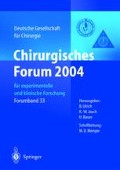Abstract
Introduction: Tumor immunotherapy requires strong adjuvants capable of inducing CTL responses and of breaking tolerance towards tumor-associated antigens (TAA). Clinical studies with soluble peptide epitopes alone didn’t prove efficiency so far. Immunopotentiating reconstituted influenza virosomes (IRIV) are one of the few adjuvants licensed for human use in Europe. We tested the capacity of IRIV to stimulate CTL responses against human TAA. Methods: IRIV were used as adjuvants for the in vitro induction of specific CTL without exogenous IL-2. PBMC of healthy donors were stimulated with IRIV and either influenza matrix 58 - 66 (IM) or melanoma associated Mart27-35 HLA-A2.1 restricted epitopes. Antigen recognizing cells were assessed by 51Cr release and tetramer staining. Cytokine gene expression and protein production were tested by RT-PCR and ELISA. Results: CTL specific for IM were inducible in PBMC following 1 week of culture in the presence of IM and IRIV at precursor frequencies higher than 1/30000 CD8+ Tcells and tetramer staining exceeding 7% of CD8+ Tcells, whereas IM alone or with control liposomes were inefficient. Induction cultures in PBMC with IRIV and the melanoma TAA Mart27 - 35 resulted in significantly (p < 0.01) higher effectiveness than with control liposomes and synthetic peptides, or peptides alone (11.3%, 1.5% and 1% Mart27–35 tetramer positive CD8+cells, respectively). Remarkably, stimulation of PBMC with IRIV alone promoted the proliferation of CD4+ CD45RO+ Tcells, as well as the gene expression and protein production of GM-CSF (> 1 ng/ml), TNF-α (> 5 ng/ml) and IFN-γ (> 200 pg/ml). Adjuvant effects on CTL induction were undetectable in cultures depleted of CD4+lymphocytes. Conclusion: IRIV provide powerful CD4 dependent adjuvance in the induction of specific CTL responses of potential relevance in cancer immunotherapy.
Access this chapter
Tax calculation will be finalised at checkout
Purchases are for personal use only
Literatur
Zajac P, Oertli D, Marti W, Adamina M, Bolli M, Guller U, Noppen C, Padovan E, Schultz-Thater E, Heberer M, Spagnoli G (2003) Phase l/ll clinical trial of a non-replicative vaccinia virus expressing multiple HLA-A0201 restricted tumor associated epitopes and costimulatory molecules in metastatic melanoma patients. Hum Gene Ther 14:1497–1510
Schumacher R, Adamina M, Zurbriggen R, Bolli M, Padovan E, Zajac P, Heberer M, Spagnoli GC (2003) Influenza virosomes enhance class I restricted CTL induction through CD4+T cell activation. JVAC: in press
Adamina M, Bolli M, Albo F, Cavazza A, Zajac P, Padovan E, Schumacher R, Feder C, Reschner A, Marti WR, Oertli D, Heberer M, Spagnoli GC (2003) Encapsulation into sterically stabilized liposomes enhances the immunogenicity of melanoma associated Melan-A/MART-1 epitopes. BJC: in press
Author information
Authors and Affiliations
Corresponding author
Editor information
Editors and Affiliations
Rights and permissions
Copyright information
© 2004 Springer-Verlag Berlin Heidelberg
About this paper
Cite this paper
Adamina, M., Schumacher, R., Bolli, M., Spagnoli, G.C., Zurbriggen, R., Heberer, M. (2004). Virosomen sind starke Adjuvanten bei der Induktion von zytotoxischen Lymphozyten gegen Tumor assozierte Antigene. In: Ulrich, B., Jauch, KW., Bauer, H., Menger, M.D., Laschke, M., Slotta, J. (eds) Chirurgisches Forum 2004. Deutsche Gesellschaft für Chirurgie, vol 33. Springer, Berlin, Heidelberg. https://doi.org/10.1007/978-3-642-18547-2_15
Download citation
DOI: https://doi.org/10.1007/978-3-642-18547-2_15
Publisher Name: Springer, Berlin, Heidelberg
Print ISBN: 978-3-540-20027-7
Online ISBN: 978-3-642-18547-2
eBook Packages: Springer Book Archive

